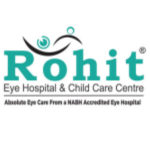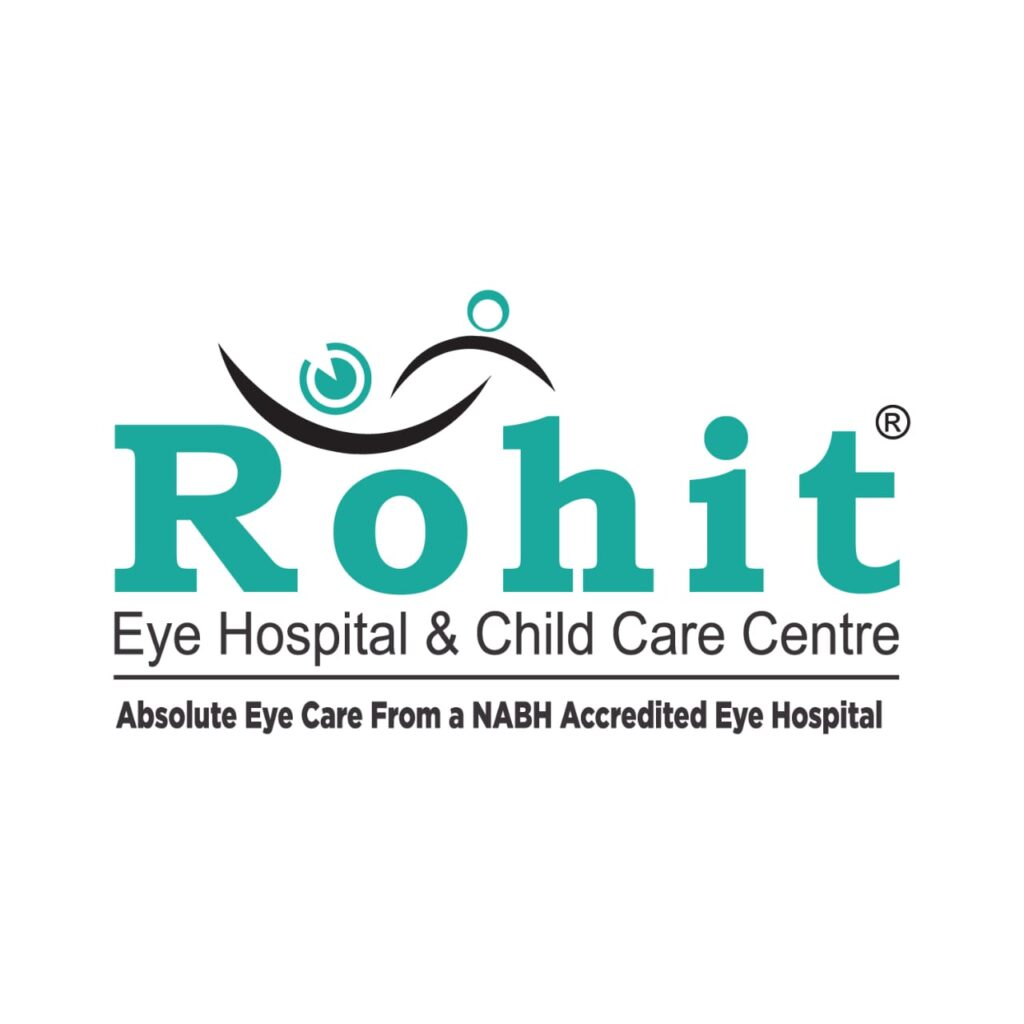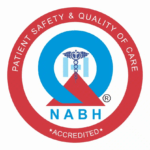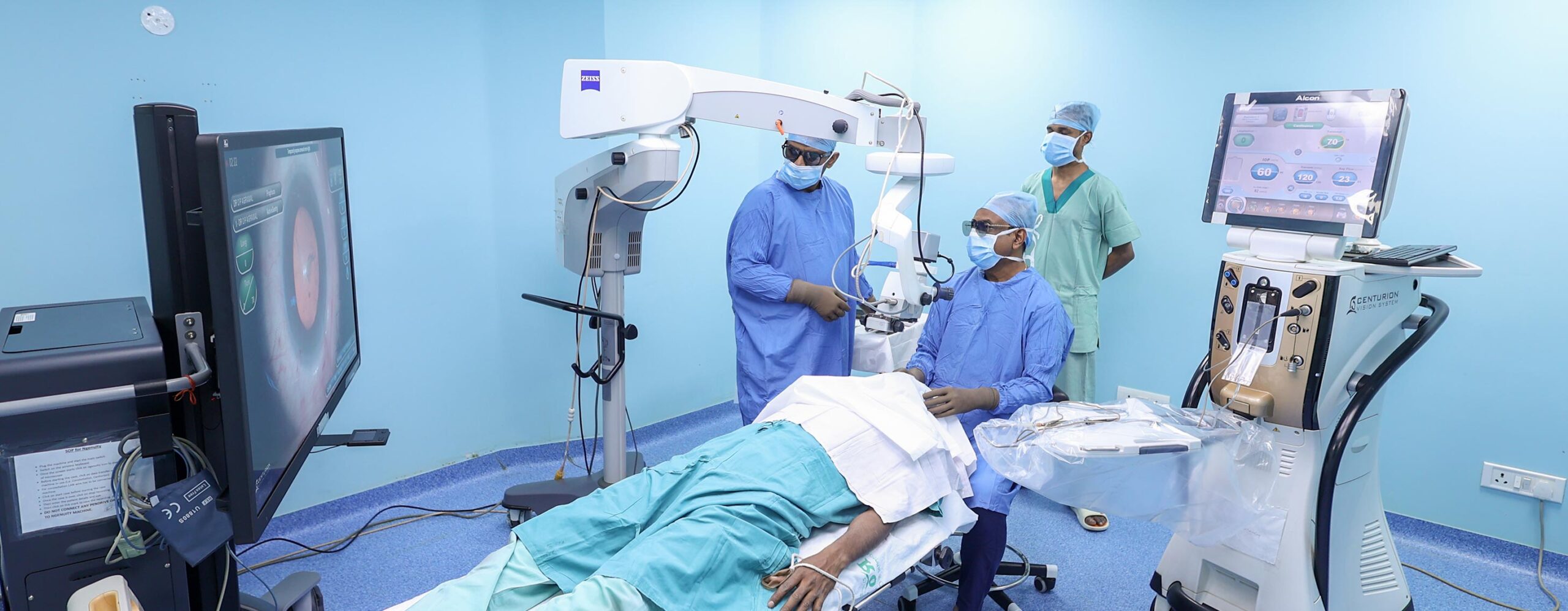
Cataract
What Is Cataract?
Cataracts are a common and natural part of the aging process.
They occur when the lens in your eye gradually becomes cloudy due to the buildup of proteins over time. As cataracts develop, they can lead to symptoms like blurry or dimmed vision. The good news is that cataract surgery is a highly effective and safe procedure to restore vision. If you’re experiencing symptoms, consult with an eye care professional for more information and guidance!
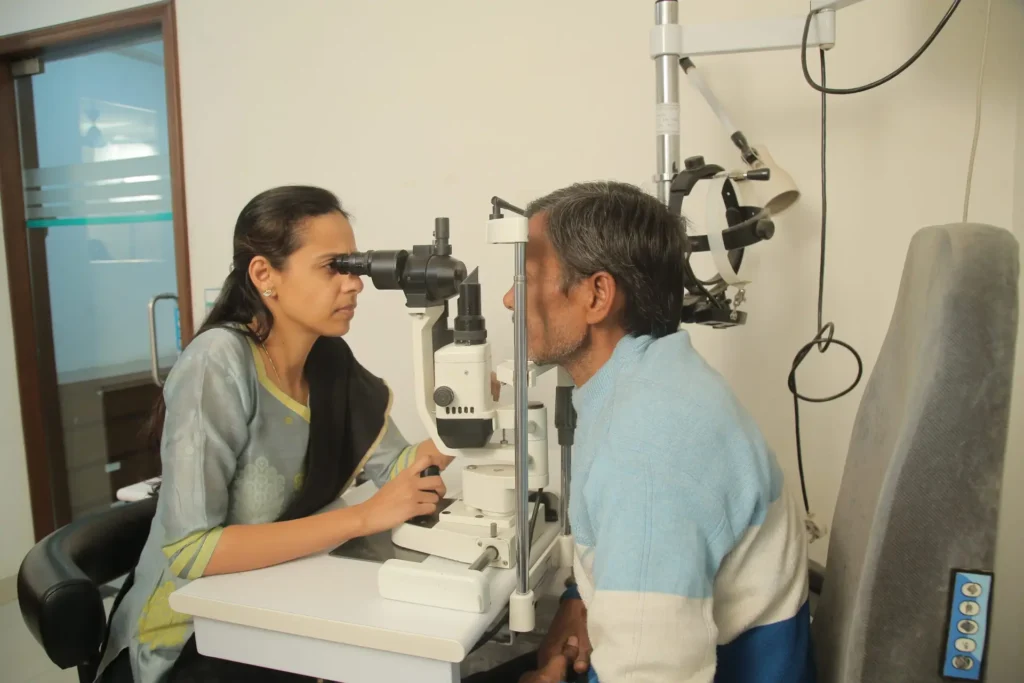
Symptoms of Cataracts
See a doctor right away if you notice these symptoms.

Blurred or Clouded Vision

Seeing 'Halos' Around Lights

Problem With Night Vision

Problem With Glare of Light

Fading or Yellowing of Colors

Double Vision

Note: This image is for demonstration purposes only and not intended to be a substitute for professional medical advice. Always consult with a doctor about your vision problem and treatment for the same.
Common Myths Regarding Cataract Surgery and Cataracts
Myths concerning cataracts and cataract surgery are widespread in society.
See below for a list of myths and facts.
MYTHS
TRUTH
Risk Factors
These factors can increase the likelihood of developing eye cataract
- Smoking
- Obesity
- Ageing
- Diabetes
- High Blood Pressure
- Steroid Medication
- Family History
- Trauma
How to prevent
Cataract can’t be prevented however its progression can be slowed down .
These are the steps you can take to slow down the progression of cataract.
- See your eye doctor on a regular basis.
- Maintain your health by eating a balanced diet and exercising.
- To shield your eyes from UV radiation, put on sunglasses.
- Control diseases including high blood pressure and diabetes.
Know More About Cataracts
Brand Partners




Frequently Asked Questions
How can I avoid cataracts and what causes them?
Cataracts are a natural part of aging and occur due to the gradual buildup of protein in the eye’s lens, making them difficult to prevent. The good news is that cataracts can be effectively treated with a safe and common surgical procedure.
My cataracts have grown and are in an advanced stage, according to an ophthalmologist. What does this signify?
Mature cataracts occur when the lens in your eye becomes significantly thickened, causing vision to become increasingly blurred. Once cataracts reach this stage, surgery is typically required to restore clear vision.
What is my chance of getting cataracts?
Cataracts can begin to develop as early as your 40s, but symptoms, such as blurry vision, typically become noticeable in your 60s.
Apart than surgery, is there another option to treat my cataracts?
Currently, surgery is the only effective treatment for cataracts. While eyeglasses or contact lenses may help manage early symptoms, cataract surgery is necessary to remove the cataract and restore clear vision.
When is the best time for me to have cataract surgery?
Cataract surgery is typically needed when your vision is impacted, making everyday tasks like reading, watching TV, using devices, or driving difficult. If you’re experiencing these issues, it’s time to consult your doctor about surgery to restore your vision.
What will take place prior to my surgery?
Before cataract surgery, your doctor will thoroughly examine your eyes to check for any other vision issues. If you have conditions like astigmatism (blurred or distorted vision) or presbyopia (difficulty seeing close up), your doctor may recommend a replacement lens that can address both issues during the surgery. Be sure to discuss your options with your doctor to improve both your cataracts and glasses prescription.
Your doctor will inform you of any medications you should stop taking before the surgery and may suggest tests, such as blood pressure and blood sugar checks. Surgery will be postponed if these are not under control. Additionally, your doctor may recommend eye drops before the procedure. It’s important to have an open discussion with your doctor and provide full details about your health and any ongoing medications.
What options do I have for a replacement lens?
Depending on your needs, you can discuss with your doctor the option of advanced technology lenses that not only address cataracts but also correct other vision issues like astigmatism (blurry vision) and presbyopia (difficulty seeing up close).
Here are the different types of lenses available:
- Monofocal Lens – Corrects only cataracts.
- Monofocal Toric Lens – Corrects both cataracts and astigmatism (distorted or blurry vision).
- Multifocal Lens – Corrects cataracts and presbyopia (difficulty seeing up close).
How crucial is it that I select my option for a replacement lens?
Following surgery, the lens that you and your physician select might significantly impact your eyesight. The kind of lens you select will determine your post-operative vision. The most crucial choice you will ever make is which lens to use. Talk to your doctor in-depth.
When will I be able to see better after the surgery?
Your vision will gradually improve within a few days after cataract surgery.
If you have astigmatism and do not choose a lens that corrects both astigmatism and cataracts, you may still need to wear glasses after surgery.
Similarly, if you have presbyopia and use glasses for close-up vision, and do not opt for a multifocal lens, you may still need glasses after the procedure.
Be sure to discuss your options thoroughly with your doctor to understand what to expect after surgery.

Dr. O.P Agrawal
(MBBS , D.O.M.S , F.C.L.I )
Medical director : Rohit Eye Hospital and Child Care Centre, Indore lasik laser centre Pvt.Ltd.

